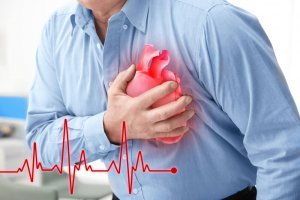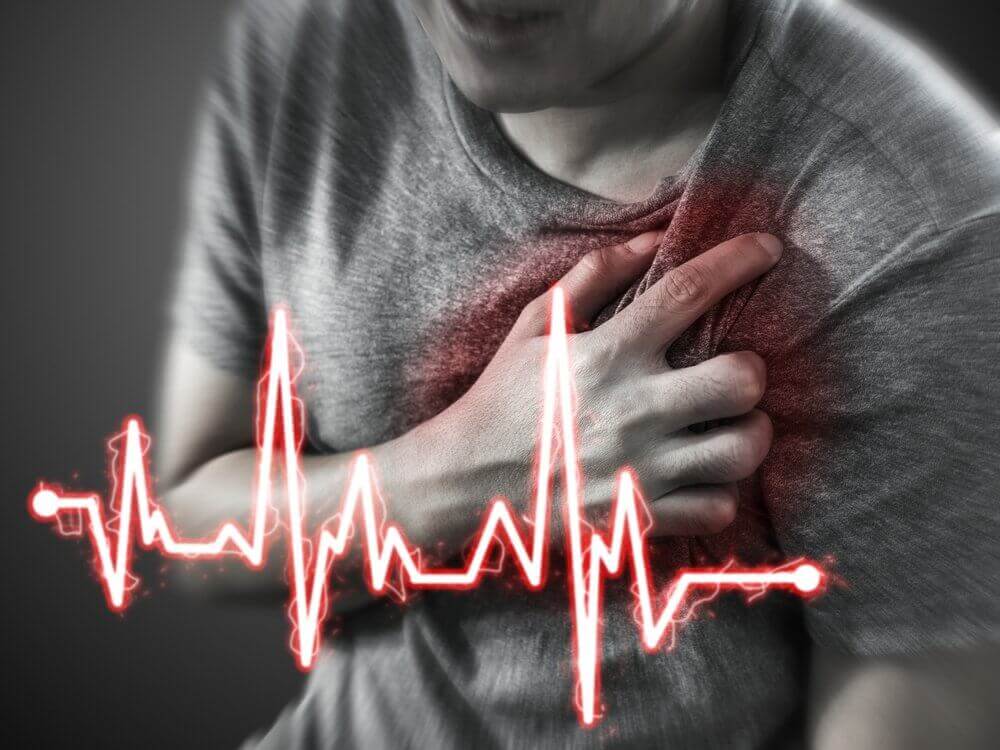5 Ways To Recognize A Heart Attack


Reviewed and approved by the doctor Gilberto Adaulfo Sánchez Abreu
Everyone should know how to recognize a heart attack. With just some clues, you’ll be able to prevent a serious and complicated situation. You’ll have to act fast.
The cause of heart attacks is simple to explain: a clot blocks the blood flow in the arteries, which prevents blood from entering the heart and being pumped to the rest of the body.
Unfortunately, heart attacks affect a considerable amount of people. In the UK, it’s the main cause of death.
In 2015, more than 420,000 people died of a heart attack, which is 6% less than 2014.
How to recognize a heart attack
The heart briefly sends signals out to the body just before the infarction. Therefore, if you know how to recognize a heart attack, you’ll be able to help the person or request medical assistance. Knowing how to act on your feet is important in this brief moment.
Recognizing a heart attack and helping the person as soon as possible could even guarantee their recovery.
You should read: The Relationship Between Coffee and Heart Attacks
The symptoms of a heart attack

- Pain behind the sternum. Afterward, the pain will spread to one of the arms, normally to the left one, then to the neck. This usually takes place over a span of 40 minutes.
- Increased palpitations and difficulty breathing.
- Nausea. However, keep in mind that, when someone feels nauseous, it doesn’t mean a heart attack is taking place. It normally happens after the aforementioned stages and the patient may end up vomiting.
- Body temperature changes. The body goes through extreme temperature change. This varies depending on the person. Some people break into a cold sweat, while others feel sudden and extreme heat or hot flashes.
- Anxiety is also common. This normally happens in risky situations. However, it’s best to seek help quickly because worrying could make it even worse.
5 habits that increase the risk of a heart attack
Some habits could increase the increase of suffering a heart attack. Discover them below:
1. Smoking
Smoking increases the risk of having a heart attack. This is one of the main causes of death from cardiovascular disease.
When someone is a heavy smoker, their respiratory function is diminished considerably. In regards to having a heart attack, it can cause serious or even fatal consequences.
2. Excessive stress
Stress is a common problem. There’s very little time to relax due to today’s fast pace in everyday life. Separating work from your personal life is the first step to dealing with stress.
Try to relax and focus on solving your problems instead of drowning in them. Breathing techniques, mindfulness, and other tools can help a person focus on today instead of worrying about the future and getting carried away by uncertainty.
3. Fats

Avoid high levels of bad cholesterol. We’re not saying to eliminate certain foods, but to keep control of what you eat. You can eat junk food every once in a while.
4. Alcohol
Alcoholic beverages are harmful when consumed frequently. In fact, they’re an important factor in obesity and they increase the chance of having heart problems.
If you’re going to drink alcohol, do it moderately. Don’t give your body a reason to get sick.
Read this article:The Effects of Alcohol on the Heart
5. Lack of physical activity

Constant stress, a lack of rest and any other type of extreme bad habits aren’t helpful. People who have a sedentary lifestyle don’t circulate their blood that often. Therefore, they could develop health problems due to their inactivity.
As you can see, there’s no need to take drastic measures to avoid a heart attack. The key is to have the most healthy lifestyle possible.
In addition, avoid any bad habits and learn to control your emotions.
All cited sources were thoroughly reviewed by our team to ensure their quality, reliability, currency, and validity. The bibliography of this article was considered reliable and of academic or scientific accuracy.
- Bode, C., & Frey, M. (2006). Infarto agudo de miocardio. In Netter. Cardiología. https://doi.org/10.1016/B978-84-458-1536-6.50009-9
- Fernández-Ortiz, A. (2011). Qué es el infarto agudo de miocardio. Libro de La Salud Cardiovascular. https://doi.org/10.1007/978-90-481-9858-0
- Arós, F., Loma-Osorio, Á., Alonso, Á., Alonso, J. J., Cabadés, A., Coma-Canella, I., … Inicial, A. (2005). Guías de actuación clínica de la Sociedad Española de Cardiología en el infarto agudo de miocardio. Revista Española de Cardiología. https://doi.org/10.1111/j.1749-6632.2012.06747.x
This text is provided for informational purposes only and does not replace consultation with a professional. If in doubt, consult your specialist.








